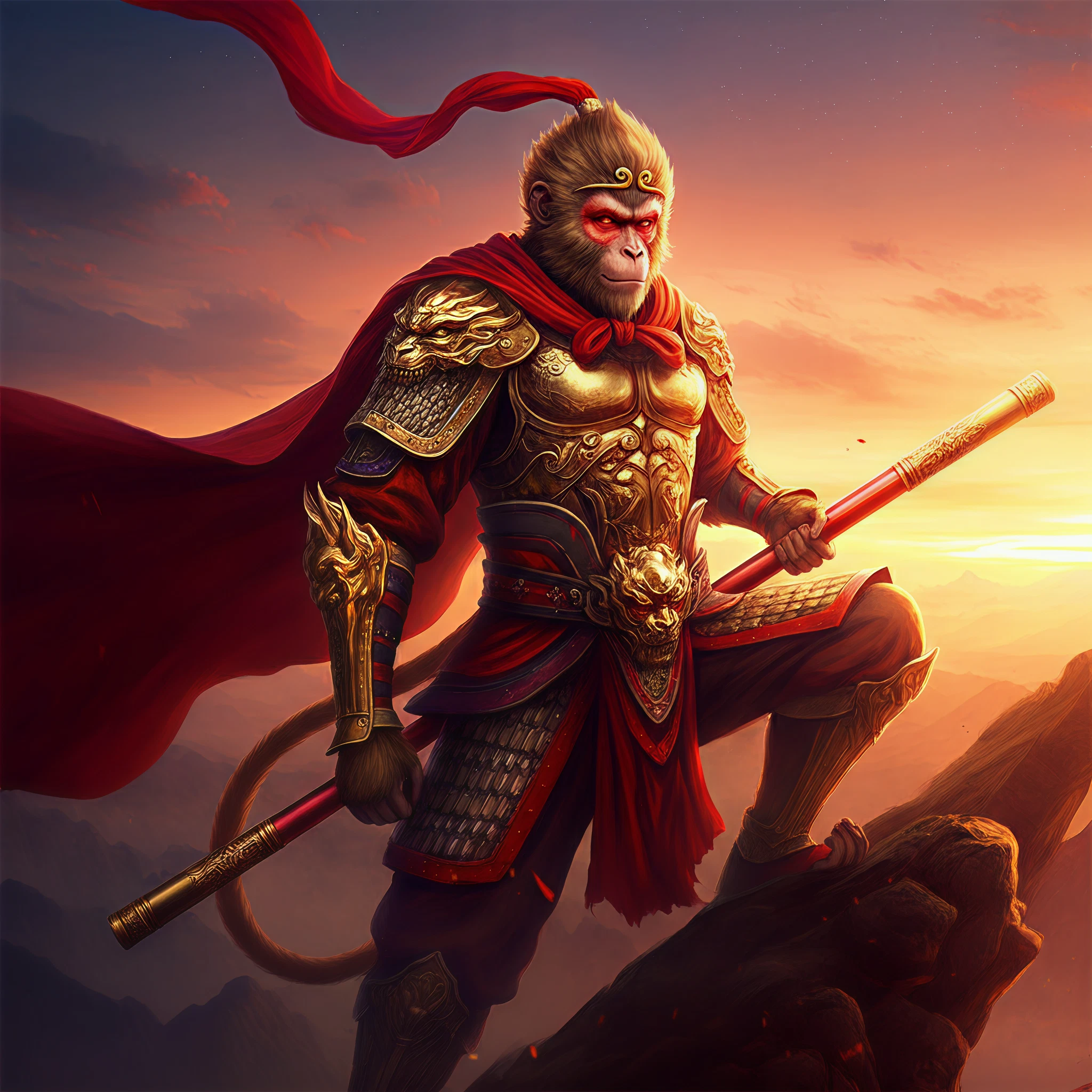The name Song Wu Kong (commonly known as Sun Wukong or The Monkey King) is inseparable from “Journey to the West,” one of China’s most celebrated classical novels. This rebellious and ingenious character has captivated mythology enthusiasts, fantasy readers, and contemporary pop culture fans alike. From his immortal feats to his cultural significance and presence in modern media, Song Wu Kong’s story resonates far beyond his origins in 16th-century literature.
Origins and Mythology of Song Wu Kong
Song Wu Kong originates as one of the central characters in Journey to the West, a Ming dynasty novel by Wu Cheng’en. Born from a divine stone atop the Mountain of Flowers and Fruit, Wu Kong is not your ordinary monkey. His supernatural birth imbues him with tremendous powers, including strength, speed, and shape-shifting abilities.
His early life unfolds with daring ambition and defiance. Wu Kong trains under a Taoist master, attaining immortality and unrivaled martial arts skills. He ultimately declares himself the “Great Sage Equal to Heaven,” leading to a dramatic fallout with the Jade Emperor and a subsequent rebellion against celestial forces. His audacity, along with his theft of the legendary weapon Ruyi Jingu Bang (a magical staff), cements his reputation as an unparalleled but unruly force.
Buddha ultimately subdues Wu Kong, imprisoning him under a mountain for 500 years. His redemption arc begins when he becomes a loyal disciple of Tang Sanzang, embarking on an epic pilgrimage to retrieve sacred Buddhist scriptures.
Key Characteristics of Song Wu Kong
1. Strength and Power
Wu Kong possesses incredible physical strength, reportedly capable of carrying mountains and defeating legions of heavenly warriors. Armed with the magical staff Ruyi Jingu Bang, which can grow to any size, he becomes an almost invincible combatant.
2. Shapeshifting Mastery
Wu Kong can transform into 72 different shapes, a skill often used to outwit enemies and overcome obstacles. He frequently adopts disguises, from insects to divine celestial beings.
3. Rebellious Spirit
One of Wu Kong’s defining traits is his defiance against authority. Whether challenging the Jade Emperor, celestial armies, or demons, his refusal to submit mirrors the human desire for freedom and justice.
4. Loyalty (Once Tamed)
Despite his rebellious beginnings, Wu Kong’s character evolves into one of loyalty and service. His bond with Tang Sanzang highlights themes of repentance, growth, and redemption as he protects his master through countless trials.
Song Wu Kong in Chinese Culture and Folklore
Wu Kong’s story extends beyond literature into folklore, becoming a symbol of rebelliousness, intelligence, and the quest for self-mastery. The Monkey King is revered for challenging societal norms and oppressive systems, making him a timeless hero who inspires generations. His wisdom and wit have also found parallels in Taoist and Buddhist philosophies, positioning him as a bridge between humanity and the divine.
During festivals like the Chinese New Year, Wu Kong frequently appears in symbolic decorations, performances, and costumes, maintaining his enduring cultural relevance.
Modern Adaptations of Song Wu Kong in Media
The tales of Song Wu Kong have transcended China’s borders, influencing global media in various forms:
1. Movies and TV Shows
Wu Kong’s character has inspired countless adaptations in Chinese cinema and beyond. Popular movies like “Wu Kong” (2017) retell his backstory, often with modern visual storytelling techniques. Internationally, Wu Kong inspired Dragon Ball’s Son Goku and elements in Hollywood films like The Forbidden Kingdom.
2. Video Games
One standout representation of Song Wu Kong in modern gaming is “Black Myth: Wukong”, an action RPG by Game Science. Immersing players in a reimagined tale of The Monkey King, the game beautifully combines Chinese mythology with cutting-edge graphics. Critics praise its creative boss designs and visual storytelling, making it a standout adaptation for gaming enthusiasts.
3. Literature and Comics
Wu Kong’s legend has crossed into Western comic stories (e.g., DC and Marvel), where he is often reimagined as a heroic figure. Countless fantasy novels have also drawn inspiration from his adventures, celebrating his mythos across cultures.
4. Anime and Manga
Song Wu Kong has influenced iconic anime characters like Goku in Dragon Ball, solidifying his role as a bridge between ancient mythology and modern pop culture.
Why Song Wu Kong Still Matters
Song Wu Kong’s story endures because it is deeply human. His arrogance, mistakes, and eventual redemption reflect our struggles and aspirations. His character serves as a beacon of hope, reminding us that growth is possible even after failure.
From mythology enthusiasts to gamers experiencing Song Wu Kong in Black Myth: Wukong, his tale resonates with everyone. It bridges cultures, generations, and mediums, proving that great stories never fade.
Start Your Journey With Song Wu Kong
Whether through the pages of Journey to the West, breathtaking films, or immersive video games, Song Wu Kong’s tale continues to captivate hearts and minds. Explore the world of The Monkey King and discover how this ageless trickster’s quest for growth and redemption mirrors your own.
Want to know more about Song Wu Kong or Black Myth: Wukong? Leave a comment below or start your next great adventure with this legendary figure.








